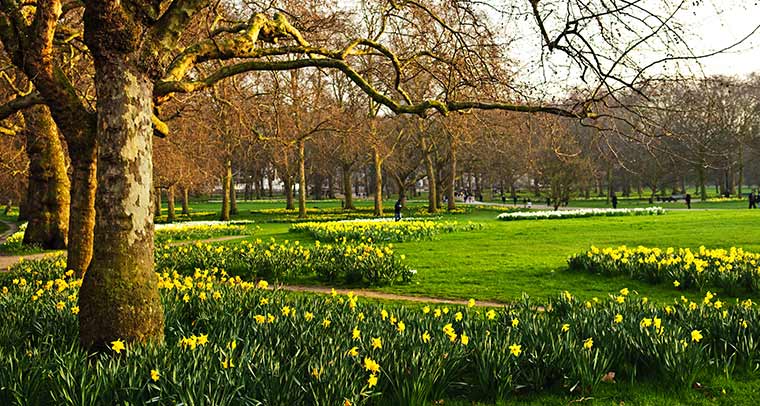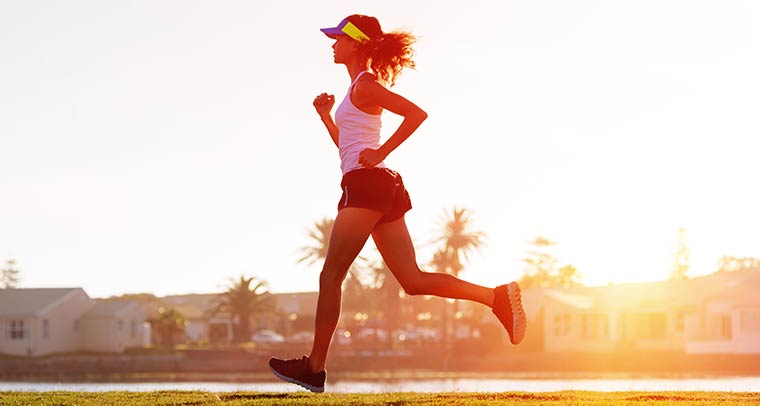The impact of Covid-19 is unprecedented – in the UK we have not seen this level of limitation on movement and social interaction for decades – centuries, even.
And as we try to adjust to the new self-isolated normal, our natural response is to try to compensate through increased activity – whether that’s deciding to exercise more, clean out the loft, dig a vegetable garden, learn Spanish, or any other actions that allow us to feel busy and useful.
This is entirely normal. But counterintuitively, the most useful action we can take is to slow down and recalibrate, rather than rush full pelt into these new activities.
Whether you’re in shared accommodation, living alone, or with family, we’re all facing new levels of anxiety and stress. While those stresses will be different for each of us, to the body, stress is stress – and irrespective of where it comes from, it affects our bodies in the same way.
Specifically: inflammation, a surge in stress hormones and a state of a heightened awareness.
Stress is a normal and natural response but unless we take steps to recover from its impact, it’s easy to become overwhelmed.
And for the next few days, there are some simple things that we can do to help manage the mental and physical impact of stress.
And… breathe.
A great place to start is with a simple breathing exercise, one of the easiest and most effective ways to calm our bodies. Start by taking a deep breath in through your nose – do this over five seconds, hold for three seconds then breathe out through your mouth over five seconds. Do this for the space of 20 deep breaths.
It’s particularly useful first thing in the morning and just before bed. Try it with your eyes closed and focus just on breathing, try to clear your mind, relax the muscles and pay attention to how the breathing feels.

Try and have contact with some natural surroundings.
The latest government guidelines still enable us to get outside and get some fresh air and sunshine.
The government’s lockdown policy means that the air will soon be cleaner than we’re used to, and for city dwellers who can’t access parks or green spaces, even proximity to house plants has been shown to have a calming effect. The Japanese call this nature bathing; simply taking a bit of time outdoors or appreciating natural surroundings can have a soothing effect.
Avoid over-exposure to the news and social media.
The temptation to constantly check our various news feeds, online and off, to stay up to date and make sure we don’t miss any announcements, means that the same information is repeated and reinforced. And while it doesn’t meaningfully improve our understanding of the situation we’re in, it does increase and reinforce our baseline levels of stress anxiety.
Similarly, while social media is a great way to stay in touch with friends and family, especially when you can’t meet in person, don’t forget that it’s an echo chamber too. There’s a strong tendency for the feeds and posts we follow to reinforce rather than ease our own attitudes, concerns and fears. So try and limit your exposure.
So find a few trusted sources, and check 2-3 in times a day at most.
Detach.
A highly effective way to manage our psychological stressors is through distraction. Find something where you can detach, that’s immersive and absorbing, and where your focus is on something other than the present worries and concerns – whether that’s yoga, mindfulness, stretching, walking, reading, low level exercise – even Friends re-runs. They’re all great strategies.

Be good to your body.
If you are exercising whilst anxious or upset, go easy. Don’t go too hard in the first few days, as your performance will be reduced and your recovery will be blunted when highly stressed. And don’t forget that sleep is a brilliant natural mechanism. Try to get more of it (most of us don’t get enough) as research shows that achieving 8 hours is where the body gets the maximum benefits and allows all natural recovery pathways to take effect.
Isolate but try not to become isolated.
Try to maintain regular contact with friends and family – don’t forget, we’re visual animals, so facetime, skype, zoom etc are great ways to reinforce the bonds between us when we can’t be together physically.
Most of all in the next few days, stay safe, and use this extra time to give your mind and body the chance they needs to cope with, and recover from, the stresses of the situation we’re all in.

